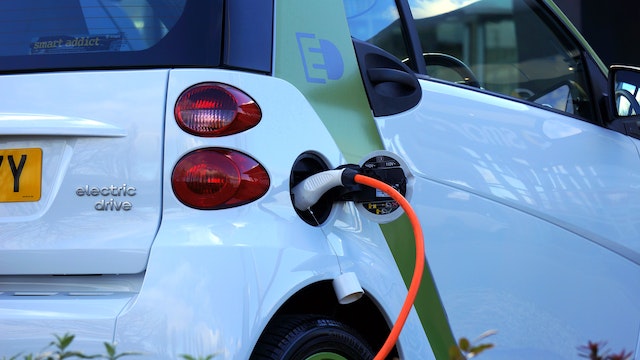
How fast could an electric car go? The current top speed achieved is 412 km/h. They could potentially go faster than that.
Electric cars have the potential to be faster than combustion engine cars because of the way they apply power to their wheels. A combustion engine works by burning gasoline to make pistons move up and down. The pistons rotate the crankshaft, which goes through gears to the drivetrain. The motion is finally passed to the wheels, and they start to rotate. There are lots of places where power is lost along the way, and it takes time for the motion to get to the wheels. About 15% of the power from the engine is lost on route to the wheels. There is a short delay between pressing the accelerator and the speed increasing. Modern electric cars can have a motor on each wheel. When you want to accelerate, you press the accelerator and more electricity is passed to the motors, making them spin faster. This motion is sent directly to the wheels and none of it is lost through gearboxes and drivetrains. To go faster is a case of just supplying more energy and to go slower or stop just means reducing or stopping the electricity. All of this means an electric car can go as fast as its wheels can spin.
This difference in the way electric cars work means they can have faster acceleration than combustion engine cars. An electric car can supply power to the wheels instantly, which gives them more torque. Torque is the rotational force that the crankshaft can supply to the wheels. A combustion engine has to cycle to about 2000 RPM before it can provide enough torque to the wheels, but an electric car can provide torque instantly, giving it very quick acceleration. This torque is constant, and acceleration could theoretically continue to the limit of the engine. Electric cars also don’t have gears, so there is no speed lost in the gear changes.
However, it is not as simple as that. The electric car that managed to drive at 412 km/h was specially adapted for that task. Regular electric cars that you can buy will not be able to go that fast because they will have speed limiters installed. The range of electric cars is limited by the amount of power that they have in their batteries. Going faster uses more power than going slowly, so it cuts the range of the car. Electric car companies want the cars to be able to go as far as possible, which makes it necessary to put speed limiters on them.
There are several other things that limit the top speed of electric cars. Firstly, they are very heavy. Electric cars tend to weigh 30% more than gasoline cars on average. This is because they are packed with lithium-ion batteries that are very heavy. Secondly, they are limited by the physical car. This applies to gasoline cars as well. If a car keeps getting faster, there will come a point where its wheels can’t take the heat from the friction and the car begins to break up. Thirdly, they are limited by air resistance. Again, this applies to gasoline cars as well.
If solutions for these problems could be found, then electric cars could potentially go faster still. Electric car manufacturers are currently trying to come up with lighter batteries. They are using different materials to increase the performance of the batteries while lowering their weight at the same time. This could enable electric cars to go faster, or to go further, but probably not both. It will also increase the length of time it takes to charge an electric car battery, which is currently a big reason why people won’t buy them. Another company is working out a way of building the batteries into the structure of the car frame, thereby using one material to do two jobs. Companies are also coming up with transmissions for electric cars. They currently don’t have gears, but if they did, it could potentially allow the wheels to move faster without needing more power.
So, electric cars could potentially go much faster than they do today, but on our current roads, with our current speed limits, there is not really a need for fast cars. The only reason we would want faster cars is if cars become automated. There would be too many accidents if humans were behind the wheels of fast cars, but if they were driven by computers, faster would be better, and still as safe. And this is what I learned today.
Photo by Mike Bird: https://www.pexels.com/photo/white-and-orange-gasoline-nozzle-110844/
Sources
https://www.caranddriver.com/features/a38887851/why-are-evs-so-quick/
https://auto.howstuffworks.com/gas-powered-vs-electric-cars-which-is-faster.htm
https://www.autocar.co.uk/car-news/advice-electric-cars/fastest-electric-cars
https://www.topspeed.com/electric-cars-make-top-speed-metrics-irrelevant/
https://www.greencars.com/greencars-101/the-future-of-ev-batteries
https://www.litsuit.com/haber/12559812/412-kmh-top-speed
https://www.energy.gov/eere/vehicles/articles/internal-combustion-engine-basics
https://edition.cnn.com/2022/10/26/tech/elaphe-slovenia-in-wheel-motors-spc-intl/index.html
https://www.kia.com/dm/discover-kia/ask/what-is-torque-in-a-car.html
https://www.politifact.com/article/2023/jun/21/carry-that-weight-electric-vehicles-outweigh-gas-c/
